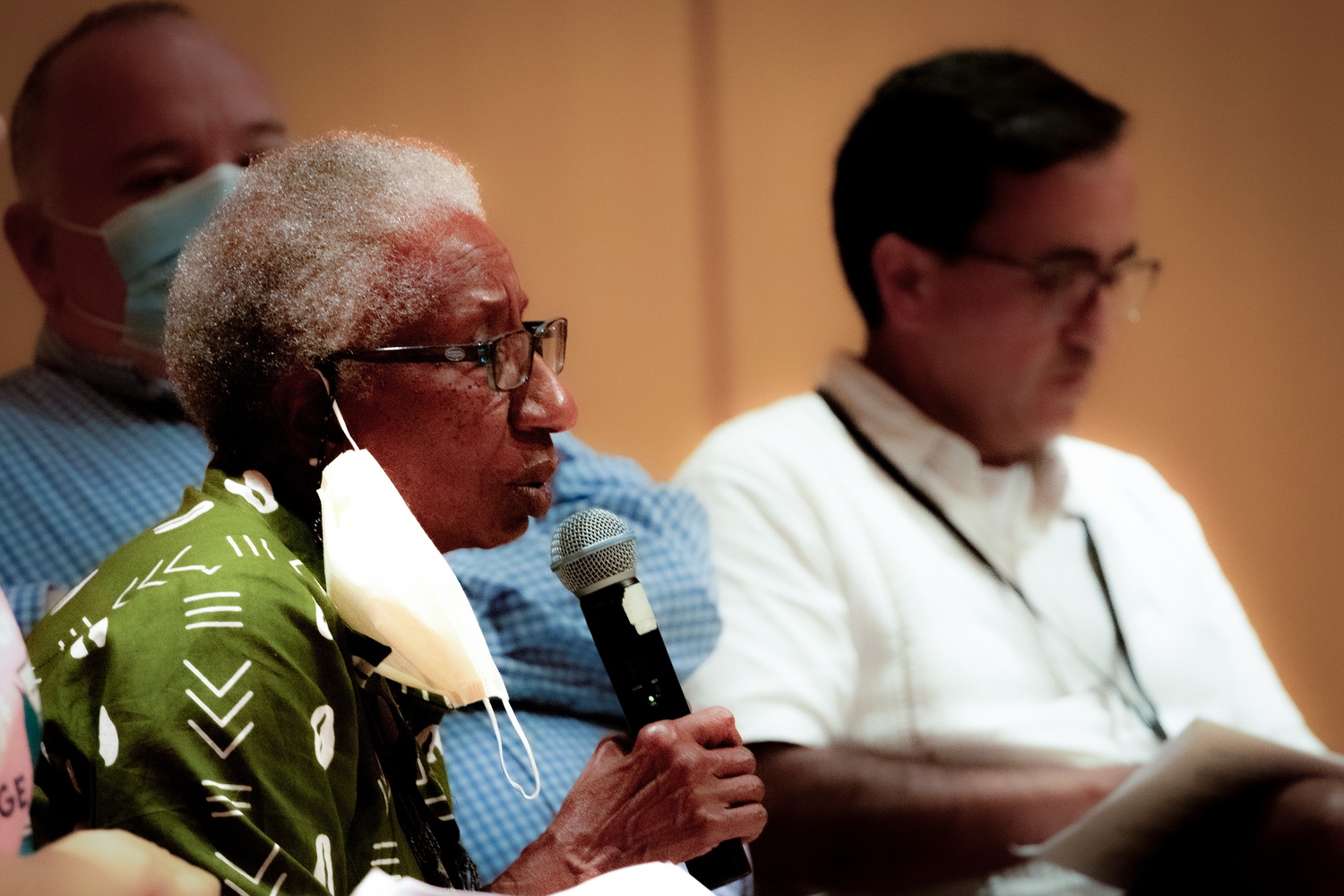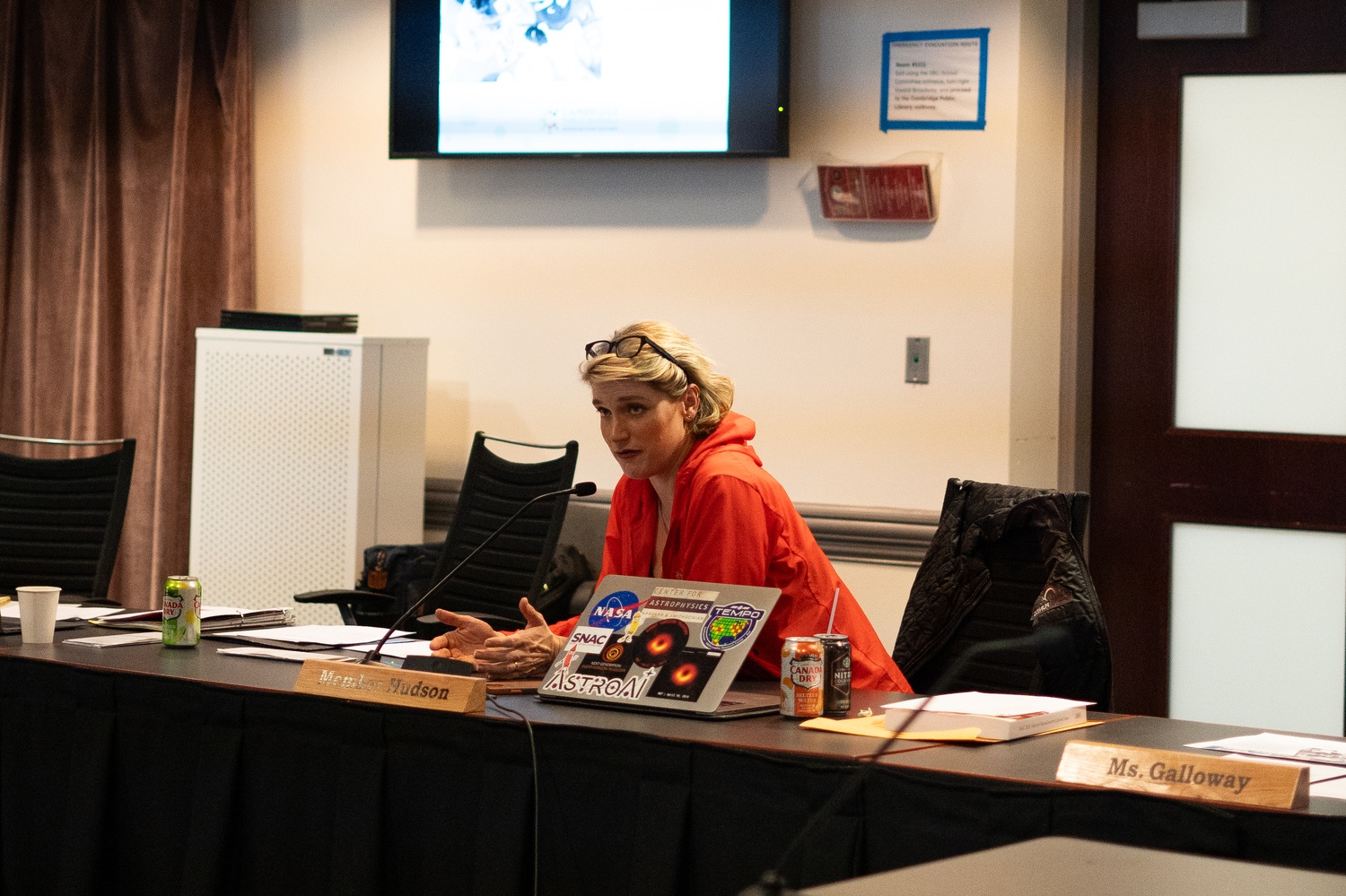Cambridge Paid Additional $40,000 to Superintendent Search Firm Without Full School Committee’s Knowledge
The City of Cambridge quietly paid The Equity Process — the firm that led the district’s controversial superintendent search — an additional $40,000 without the knowledge of many School Committee members for a large amount of work that was included in their previous contract.
The city of Cambridge quietly paid The Equity Process — the firm that led its public school district’s controversial superintendent search — an additional $40,000 without the knowledge of many School Committee members for a large amount of work that was included in their previous contract.
The superintendent search has been a contentious point in the upcoming municipal elections — polarizing the incumbents and the challengers, with many calling for the process to be restarted. Now, with less than one week until election day, the controversy was reignited after a parent shared details of the $40,000 contract in a district listserv last week.
The contract, dated Sept. 4 for work that started in July, was obtained by a district parent through a public records request and shared with The Crimson. Multiple parents who read the contract in the listserv demanded the City Council to share more information at Monday’s Council meeting, calling for accountability.
“The situation raises serious concerns about transparency, physical oversight and governance,” parent and challenger Lilly Havstad said.
The Equity Process — a consultant group that provides professional development and equity focused hiring practices — only identified itself online as an executive search firm in June, after being hired by CPS. Though the company contracts outside consultants, The Equity Process does not employ anyone beyond their CEO and founder Cyndi Weekes Bradley.
“The Equity Process remains committed to equity-centered leadership, transparency, and service to students and community. We do not engage in personal commentary and remain focused on our mission and our work,” Bradley wrote in a statement.
As the election rapidly approaches, School Committee member Elizabeth C.P. Hudson — who said she was unaware of the second contract — said the disclosure only adds more fuel to the fire surrounding the ongoing controversy.
“You have to hold the committee responsible, unfortunately, and that includes the committee leadership,” said Hudson, who has been a vocal critic of the search process. “The committee leadership has broad latitude, which is illustrated by this, right? They could take action on behalf of the committee — without the committee’s knowledge or approval.”
The Process
Many School Committee members remained in the dark about the second contract, even as tens of thousands of dollars from the body’s budget were spent on the firm’s services.
The original contract was only $9,950 — just under the 10,000 that triggers a public bidding process. The School Committee previously rejected three firms, with CPS Executive Director of Human Resources Ashley Pierre telling the school committee that the bids did not meet minimum requirements and might exceed the budget.
The new Equity Process contract brings their total payment to just under $50,000. This exceeds the dollar amount for two of the three firms that were originally rejected.
Mayor E. Denise Simmons — the School Committee’s chair — and Vice Chair Caroline M.L. Hunter took point on initiating the second contract. In a Tuesday statement to The Crimson, the two wrote that they “led this search through complexities, competing priorities, and — at times — a lack of unity among those charged with guiding it.”
The two-page statement, printed on Cambridge letterhead and signed by both Simmons and Hunter, detailed how the School Committee chose The Equity Process and laid out justifications for how the city conducted the contract process. It acknowledged that parts of the process were conducted by subcommittees, established to avoid open meeting law violations, meaning that “not every member tracked every procedural detail in real time.”
In August, three months after the district agreed to the initial contract, the School Committee sent the city a sole source procurement justification — an explanation for securing the $40,000 contract without a competitive bidding process. City spokesperson Jeremy H. Warnick confirmed that the letter was sent on behalf of the entire School Committee.
“As noted on the letterhead and memo, it was sent from the Office of the School Committee,” Warnick wrote.
But Simmons and Hunter admitted that their fellow members were not aware of the additional $40,000 contract.
“In that collaborative navigation of complex rules and tight timelines, the step of securing explicit School Committee authorization for the additional funding was not taken,” they wrote in the Tuesday statement.
Hudson said it was “totally absurd” that Simmons and Hunter initiated the $40,000 payment “for work that had never been discussed — let alone voted on, let alone approved.”
Simmons and Hunter said that the initial $10,000 contract did not reflect the entire scope of The Equity Process’ work, and that the additional $40,000 was needed to streamline the search process. They wrote that they initially intended the search to involve three firms — all paid less than $10,000 — to facilitate early-phase screening, run town halls, and conduct the community survey.
“But as the work progressed, coordinating three vendors — with different communication styles and workflows — created inefficiencies and confusions,” they wrote. “As the work extended beyond June, it became clear that consolidating tasks under one group was the only viable way to maintain consistency and coherence.”

In the initial invitation to bid — set out to firms in February — the district projected that a superintendent would be appointed in October, not June, consistent with the actual timeline of the process. The sole source letter contradicted this timeline, noting that the School Committee intended to appoint a superintendent by June 30.
The community survey, completed by the Donovan Group, was finalized in June 2025. The Equity Process also completed early-phase screening before the second contract. While no third vendor was disclosed for the virtual town halls, The Equity Process held “listening sessions” in August and September.
Simmons and Hunter maintained that additional work was needed and additional payment was justified.
“When additional responsibilities and time commitments became necessary, we submitted to the City’s HR Department a formal sole-source justification for an expanded contract under city procurement rules,” they wrote. “Had we been advised at that juncture that the additional compensation for this work should be placed before the School Committee for formal approval, we would have taken that step.”
The Contracts
While Simmons and Hunter say the role of The Equity Process expanded, the original scope of work submitted by the firm on May 28 to secure the $9,950 contract contained nearly all of the same job descriptions as the new, much more expensive contract.
The September contract for $40,000 includes a description of four phases from July 1 through Dec. 31, three of which are meant to account for the increased spending. The first phase, listed as completed before July 1, included anti-bias training, candidate recruitment, and the initial screening by three School Committee members.
The second phase included supporting the School Committee to design interview questions, conduct semi-finalist interviews, develop a rubric, perform soft background checks, and maintain “ongoing communication with the SC and candidates.”
The work outlined in this phase makes up $15,500 of the new contract — but consists of nothing that was not written into the original scope of work.
Phase three took place from August to early October — the date for voting the superintendent. It included non-Criminal Offender Record Information background checks, performance assessments, further rubric development, designing and conducting small group listening sessions, “co-design” of site visits, sharing an update memo with the School Committee, and “offering needed support on equity-centered finalist interview processes.”
Only the site visits and performance assessments were not listed in the original contract. The total for this phase cost Cambridge taxpayers $14,500.
The final phase, taking place from Oct. 7 to Dec. 30, includes support for superintendent finalist interviews, a 90-day superintendent onboarding, “SC support,” and executive leadership coaching “as needed.” The cost of this final section was $10,000 — bringing The Equity Process’s total compensation to $49,950.

Hudson said she thought the last phase was unnecessary and even unhelpful.
She intends to file a motion to terminate the contract and demand a refund, she said, saying there is “no world” in which she would pay or allow The Equity Process to complete its additional tasks — including coaching the new superintendent.
“Never in a billion years would I pay people — this firm — to give our new superintendent in whom I had great faith leadership coaching,” Hudson said.
“I would pay them more to stay away,” she added.
—Staff writer Ayaan Ahmad can be reached at ayaan.ahmad@thecrimson.com. Follow him on X @AyaanAhmad2024.
—Staff writer Claire A. Michal can be reached at claire.michal@thecrimson.com.
